20+ Years Experience
Specialist Cocaine Rehab

Enquire Today For A Free No Obligation Quote
Are you or a loved one struggling with addiction?
Cognitive behaviour therapy for addiction (CBT) offers a fresh and evidence-based approach to overcoming addiction, by addressing the root causes and breaking the cycle of negative thoughts and behaviours.
In this blog post, we will explore the role of CBT in addiction treatment, its key components, and the process involved, as well as share success stories of those who have triumphed over addiction using cognitive behavioural therapy for addiction.
Let’s begin the journey towards a healthier, addiction-free life.
Cognitive behavioural therapy is a widely recognised and evidence-based approach to treating addiction.
Its effectiveness has been proven in addressing various substance abuse disorders, from drug and alcohol addiction to behavioural addictions like gambling.
CBT focuses on identifying and modifying negative thought patterns and maladaptive behavioural patterns, which often drive addiction.
With the help of cognitive behavioural therapists, individuals learn to replace these unhelpful thoughts and behaviours with healthier coping strategies, ultimately breaking free from the cycle of addiction.
When it comes to substance abuse, CBT offers a range of techniques and interventions to treat addiction.
For example, in treating cocaine addiction, CBT employs functional analysis to identify triggers, behavioural strategies to prevent relapse, and the development of problem-solving, drug refusal, and coping skills.
CBT has also shown promise in treating behavioural addictions, such as gambling addiction, with a study reporting that 64% of individuals receiving CBT remained abstinent during the treatment period.
Research on the efficacy of CBT for addiction and other treatment strategies has yielded mixed results; however, it consistently demonstrates a moderate to high effectiveness when compared to other treatment methods.
Effect sizes range from small to large, depending on the substance targeted, suggesting that CBT can be a valuable tool in the effective treatment strategies.

CBT has proven to be effective in treating various substance use disorders, including drug or alcohol use.
Techniques such as functional analysis help identify the triggers and antecedents of substance abuse, while behavioural strategies are employed to prevent these triggers and develop coping skills to maintain abstinence.
Contingency management (CM) has also shown success in treating drug dependence and abuse, with studies demonstrating that patients receiving CM achieved longer durations of abstinence compared to those who did not receive CM during a 6-month follow-up period.
Relapse prevention (RP) is another critical component of CBT for substance use disorders.
This cognitive-behavioural approach focuses on analysing cues that may lead to drug use and training alternative responses to these cues.
RP has been effectively applied not only in substance abuse treatment but also in addressing anxiety disorders, as it helps individuals identify triggers and develop coping strategies to prevent relapse.
Research comparing the efficacy of individual CBT and behavioural couples therapy (BCT) for alcohol dependence has shown comparable results, with individual CBT offering certain cost benefits.
Cognitive behavioural therapists can provide mental health services, such as tailored treatment plans for individuals struggling with various substance use disorders, including those related to other mental health conditions like anxiety disorders and depression.
By working with the mental health services administration, they help individuals overcome addiction and lead healthier lives.
Behavioural addictions, also known as process addictions or impulse control disorders, involve compulsive engagement in behaviours or activities that bring about a reward or pleasure, despite adverse effects.
Examples include addiction to gambling, alcohol, drugs and sex addiction.
These maladaptive behavioural patterns can be effectively addressed through Cognitive Behaviour Therapy.
CBT has shown promise in treating behavioural addictions, such as gambling addiction. In one study, 64% of individuals with gambling addictions treated with cognitive behavioural therapy remained stable during the treatment period.
This demonstrates the versatility and effectiveness of CBT in treating not only substance use disorders but also behavioural addictions, offering hope for those struggling with various forms of mental health problems and addiction.
The central focus of CBT revolves around recognising and confronting negative thoughts and beliefs, developing coping strategies, and building resilience and self-efficacy.
By addressing these components, individuals can gain a better understanding of their addiction and work towards recovery.
One essential aspect of cognitive restructuring is identifying negative beliefs related to substance use disorders.
Through techniques such as Thought Records, individuals can critically assess their thoughts and learn to think more objectively and less harshly.
By recognising and addressing these negative thoughts and beliefs, individuals can begin to break the cycle of addiction and work towards a healthier, addiction-free life.
Developing coping strategies is another crucial component of CBT for addiction.
By emphasising psychoeducation, skills training, and behavioural strategies to avoid triggers, CBT helps individuals develop healthier coping mechanisms to manage cravings and maintain abstinence.
This skill-building process extends beyond therapy sessions, with homework and activities that enable individuals to practice their newly acquired skills in real-life situations, further enhancing a person’s ability to manage addiction.
Recognising and challenging negative thoughts and beliefs is a critical first step on the road to addiction recovery.
CBT assists individuals in identifying these maladaptive thoughts, such as “My manager thinks I’m useless. I need to drink to feel better.
Through the use of Thought Records and other CBT techniques, individuals can assess these thoughts critically and learn to think more objectively and less harshly about themselves and their circumstances.
By identifying and addressing negative thoughts and beliefs, individuals can better understand the cycle of addiction and work towards breaking it.
This self-awareness is crucial in promoting lasting change and enabling individuals to overcome addiction and lead healthier, more fulfilling lives.
Developing effective coping strategies is essential for long-term success in addiction recovery.
CBT treatment offers various techniques and exercises that help individuals build new coping skills, such as managing triggers and engaging with addiction support groups like the Self-Management and Recovery Training (SMART) program.
These strategies can be practised both during therapy sessions and independently, allowing individuals to hone their skills and apply them in real-life situations.
Research has shown that individuals who complete homework and skill-building exercises as part of their CBT for addiction treatment experience a decrease in drug use, and consequently, drug addiction, one year after therapy, as well as an increase in the amount and effectiveness of coping strategies in real-world situations.
By developing and practising these coping strategies, individuals can better manage their addiction and work towards long-term recovery.
Building resilience and self-efficacy is another critical component of CBT for addiction.
Resilience refers to the ability to remain flexible and adaptable in the face of life’s challenges, while self-efficacy is the confidence individuals have in their ability to manage these challenges.
By enhancing both resilience and their self esteem-efficacy, CBT helps individuals gain a sense of control over their lives and increase their motivation for recovery.
Through the various techniques and exercises employed in CBT, individuals can develop the necessary tools to manage difficult situations and foster long-term recovery.
By instilling confidence and empowering individuals to take on challenges, CBT can play a crucial role in overcoming addiction and leading a healthier, more fulfilling life.
The cognitive triangle is a model used in Cognitive-Behavioural Therapy that illustrates the interplay between thoughts, emotions, and behaviours.
It highlights how alterations in one of these components can impact the others, and plays a crucial role in understanding addiction.
By modifying negative thoughts, feelings, and behaviours, individuals can work towards breaking the cycle of addiction and ultimately overcoming it.
Understanding the cognitive triangle provides valuable insight into the workings of addiction.
Negative thought patterns can lead to negative emotions and behaviours, thus potentially resulting in addiction.
By recognising and addressing these interconnected components, individuals can work towards breaking the cycle and ultimately overcoming addiction.
The cycle of negative thoughts, negative feelings, and behaviours is a pattern that is associated with addiction and is explained by the cognitive triangle.
Recognising this cycle is crucial in understanding the root causes of addiction and working towards recovery.
By identifying patterns of behaviour and taking action to make positive changes, individuals can begin to break this cycle and overcome their addiction.
Understanding the cycle of addiction can help individuals recognise triggers and develop coping strategies for managing these triggers.
By breaking this cycle, individuals can gain control over their addiction and work towards long-term recovery.
The cognitive triangle serves as a valuable tool in understanding and addressing the underlying causes and patterns of addiction.

Breaking the cycle of addiction with CBT involves recognising and disputing negative thoughts and beliefs, and replacing them with more positive ones.
This process helps individuals gain a better understanding of their addiction and work towards recovery.
By addressing and modifying these negative thoughts, feelings, and behaviours, individuals can disrupt the cycle of addiction and move towards a healthier, addiction-free life.
The process of disrupting the cycle with CBT includes recognising and questioning pessimistic thoughts and convictions and replacing them with optimistic ones.
By altering these thought patterns, individuals can break the cycle of addiction and work towards long-term recovery.
CBT and other treatments offer a comprehensive and effective approach to overcoming addiction and leading a healthier, more fulfilling life.
The process of CBT for addiction typically involves assessment and goal setting, individual and group sessions, and homework and skill-building activities.
Through these steps, individuals can gain a better understanding of their addiction, develop healthy coping strategies, and work towards long-term recovery.
Assessment and goal setting are essential for therapists to gain an understanding of the individual’s needs and develop a tailored treatment plan.
This process helps identify maladaptive behaviours, enhance motivation for change, and develop healthy coping skills, providing a solid foundation for addiction recovery.
Individual and group sessions offer a secure environment for individuals to address topics and acquire new abilities.
These sessions provide a confidential space for discussing sensitive topics and a supportive setting for connecting with others who understand their circumstances.
By participating in these sessions, individuals can develop the skills and strategies necessary for managing their addiction and fostering long-term recovery.
Assessment and goal setting in CBT for addiction involve identifying maladaptive behaviours, enhancing motivation for change, and developing healthy coping strategies.
This process is crucial for therapists to gain an understanding of the individual’s needs and develop a tailored treatment plan that addresses the root causes of their addiction.
Goal setting is a vital element of addiction recovery, as it assists individuals in forming a new and improved outlook for who they aspire to be.
By setting achievable and meaningful goals, individuals can develop a sense of purpose and direction in their recovery journey, ultimately leading to a healthier, addiction-free life.
Individual and group sessions in CBT for addiction provide a secure environment for exploring topics and developing new skills.
Individual therapy offers a confidential setting for discussing sensitive topics, while group therapy fosters connection with others who understand the individual’s circumstances and cultivates accountability.
Both types of sessions play a crucial role in the recovery process, as they allow individuals to share their experiences, learn from others, and develop the skills necessary to manage their addiction.
By actively participating in individual and group sessions, individuals can build a strong support network that will help them maintain long-term recovery.
Homework and skill-building activities are essential components of CBT for addiction, as they enable individuals to practice new skills and apply them in real life.
These activities formulated collaboratively during therapy sessions, may include journaling, role-playing, and relaxation techniques, allowing individuals to rehearse new skills, practice coping strategies, and modify maladaptive beliefs.
Research has shown that individuals who complete homework and skill-building exercises as part of their CBT for addiction treatment experience a decrease in drug abuse one year after therapy, as well as an increase in the amount and effectiveness of coping skills in real-world situations.
By engaging in these activities, individuals can better manage their addiction and work towards long-term recovery.
CBT has helped countless individuals overcome addiction and lead healthier, more fulfilling lives.
Success stories from addiction treatment centres like Castle Craig and Sanctuary Lodge demonstrate the effectiveness of CBT in successful treatment, helping individuals break free from the cycle of addiction and maintain long-term recovery.
These real-life examples offer hope and inspiration for those struggling with addiction and mental illness, showing that recovery is possible with the right support and tools.
By embracing CBT and its techniques, individuals can transform their lives, overcome addiction, and build a brighter future for themselves and their loved ones.
If you or a loved one are struggling with addiction, don’t hesitate to reach out and learn more about how Cognitive Behavioural Therapy can help.
Our team of experienced therapists is dedicated to providing the support and guidance necessary for overcoming addiction and leading a healthier, more fulfilling life.
Contact us today to discover how CBT for addiction can make a difference in your life or the life of someone you care about.
In conclusion, Cognitive Behavioural Therapy offers a comprehensive and evidence-based approach to overcoming addiction.
By addressing the root causes of addiction, such as negative thoughts and behaviours, and providing individuals with the tools to develop healthier coping strategies, CBT can play a crucial role in the journey towards recovery.
With its focus on resilience, self-efficacy, and long-term success, CBT empowers individuals to take control of their lives and build a brighter future. Don’t wait to take the first step towards a healthier, addiction-free life – contact us today to learn more about CBT and other treatments for addiction and mental disorders.
The cognitive approach to addiction suggests that an individual’s thoughts and beliefs influence their addictive behaviour.
By recognising and modifying their belief systems, individuals can identify high-risk situations and better equip themselves to make healthier choices.
CBT therapy is used to assess the connection between behaviour and cognition, allowing individuals to build the skills necessary to develop healthier relationships with substances.
Cognitive behavioural therapy (CBT) is an effective and commonly used treatment for addressing addiction.
This approach examines the way in which behaviour, thoughts, feelings, and the environment all interact to create a pattern of addictive behaviour.
CBT helps individuals identify triggers, develop coping strategies, and gain insight into their own behaviour to help break the cycle of addiction.

CBT for addiction is an evidence-based practice psychological treatment that encourages participants to identify, challenge, and modify their own thinking processes in order to increase positive behaviour outcomes.
It is a therapeutic approach used to help individuals recognise unhealthy patterns of thought and behaviour so that they can develop more positive coping skills and better manage their addictions.
“CBT treatment provides a structured approach to breaking the cycle of addiction by helping the person identify their negative thought patterns and change them into healthy ones.
By providing positive emotions and coping strategies and replacing harmful thoughts with healthier ones, CBT helps individuals break the cycle of addiction.
This process enables them to create lasting behavioural changes and build a healthier lifestyle.
CBT for addiction is a structured process that typically involves assessments, individual and group sessions, and worksheets to learn healthy skills.
Through this approach, individuals can learn to identify triggers and replace unhealthy behaviours with healthier coping mechanisms.
There are a range of other services that we can provide. Have a look at the list below for more information:








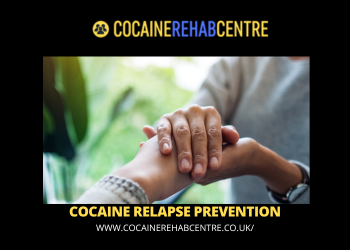
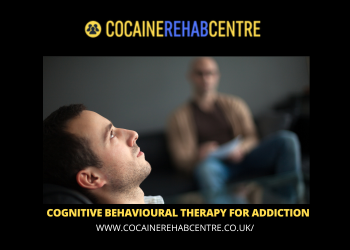





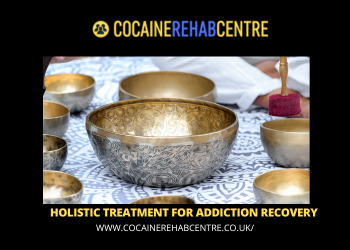




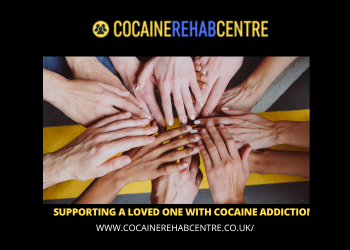

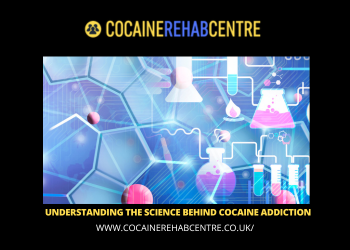


We Aim To Reply To All Enquiries With-in 24-Hours